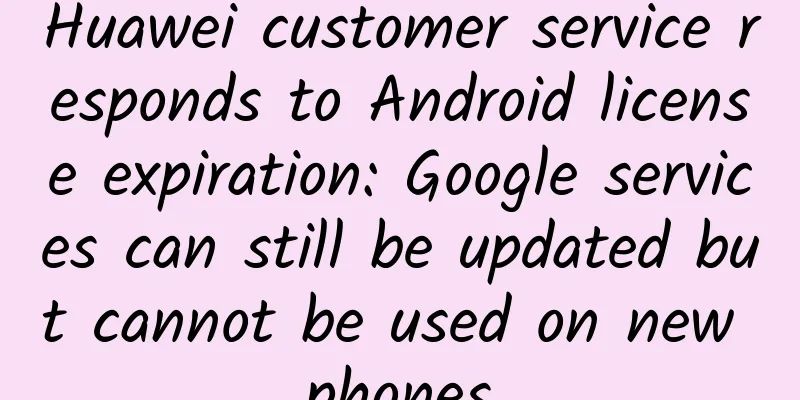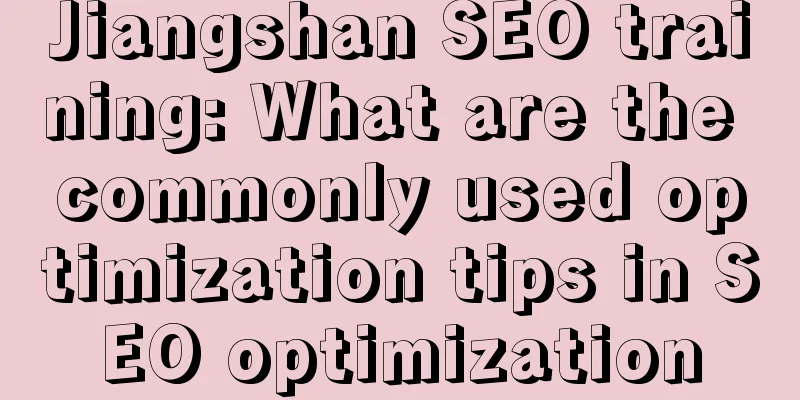Huawei customer service responds to Android license expiration: Google services can still be updated but cannot be used on new phones

|
According to foreign media reports, the temporary license provided by the U.S. Department of Commerce to Huawei expired on August 13. It is rumored online that Huawei's Android phones may not be able to be upgraded, and system updates and security patches cannot be upgraded. In this regard, some media contacted Huawei's consumer business customer service, who stated that for Huawei's mainland China version phones that have pre-installed GMS (Google Services), applications can still be downloaded and updated through other channels; however, newly released phones such as P40 and Mate 30 do not have GMS pre-installed and cannot use Google Play-related software. According to domestic media reports, Huawei responded that "Huawei will continue to provide system updates and security patches. All Huawei phones pre-installed with Google Play can still use the Play Store to download and update apps. Huawei phones without Google Play pre-installed can use AppGallery (Huawei's own app store) to get apps and security updates."
Although there are currently no major problems with the system, Huawei has encountered unprecedented difficulties with chips. On August 17, local time in the United States, the Bureau of Industry and Security (BIS) of the U.S. Department of Commerce issued a revised ban on Huawei, which took effect immediately. The ban further restricts Huawei's use of U.S. technology and software to produce products, and adds 38 Huawei subsidiaries to the entity list. The US Department of Commerce has added several new rules to the ban, such as: foreign products that use US technology or software as a basis and are used to produce or develop any parts, components, or equipment are prohibited. Huawei's related subsidiaries on the Entity List are also prohibited from doing the above. Huawei-related subsidiaries on the Entity List are also prohibited from playing the roles of purchasers, intermediate consignees, and final consignees. This means that it will be more difficult for Huawei to obtain chips. In May this year, the United States has upgraded its restrictions on Huawei. According to the regulations, starting from September 14, TSMC will no longer be able to produce chips for Huawei.
|
Recommend
Why can’t we stay in the last room of the hotel?
One minute with the doctor, the postures are cons...
How to operate Pinduoduo paid membership!
There are endless ways to play with paid membersh...
APP Promotion Operation Manual Complete Strategy
Starting from the position of mobile Internet mar...
Comparison of Flutter and React Native for mobile development
【51CTO.com Quick Translation】Just a few years ago...
Summary of content community product operation methodology
Content operation refers to the complete operatio...
WeChat's new gameplay is so magical! Be the first to experience WeChat Android beta version
[[401766]] Recently, the new versions of WeChat a...
"How Much Do You Know About Food Nutrition" Series | Sprouted Brown Rice Improves Type 2 Diabetes, Researchers Analyze the Reasons
At present, many studies have shown that eating b...
After launching a satellite, the rocket will only become space junk? Maybe it can also protect the earth!
On November 5, the Long March 6 carrier rocket su...
How much is the investment price for the Shigatse agricultural products mini program? Shigatse Agricultural Products Mini Program Merchant Price Inquiry
How much does it cost to attract investment for t...
Everyone is talking about UGC operation, but do you know what the core of UGC is?
UGC is the abbreviation of User Generated Content...
Stomach problems can be cured by "nurturing". This article explains how to properly nurture the stomach.
Someone asked Huazi, "I heard that stomach p...
How to cold-start community activities in 7 cities within 7 days
Based on the experience of previous event operati...
Please note when you see this: Don’t cross your legs!
In the previous article when I was explaining cer...
International Rare Disease Day丨"Puppet Man" and "Porcelain Doll"...How much do you know?
Xianxian (pseudonym), who is two and a half years...
Using OpenGL to generate transition effects in mobile applications
Author | jzg, a senior front-end development engi...









